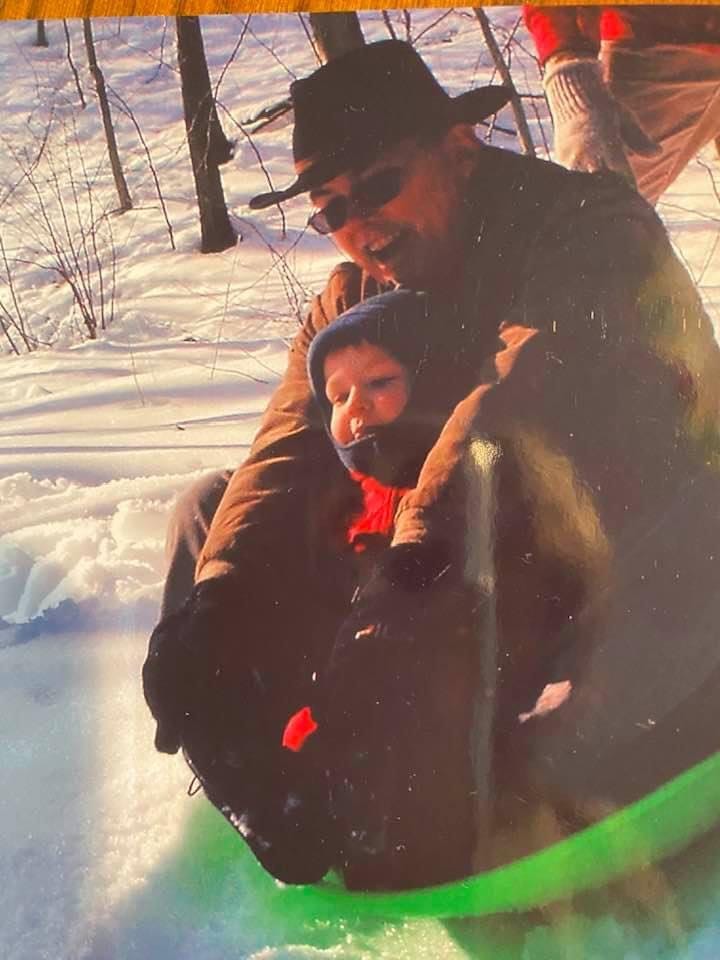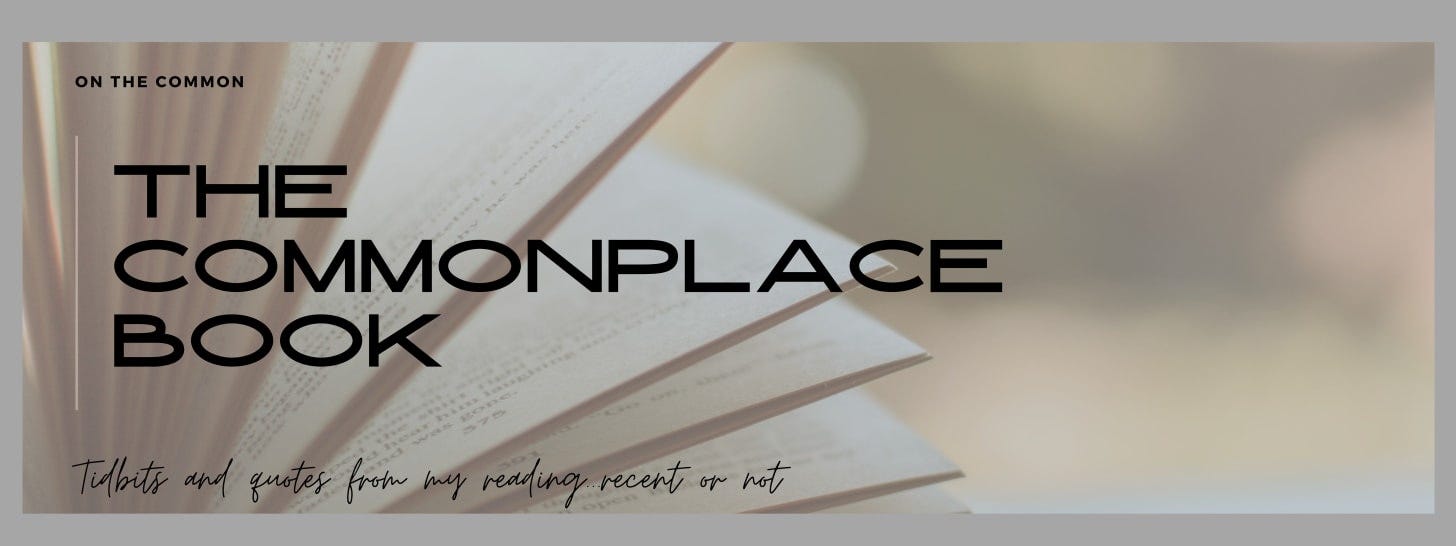Hello everyone,
I apologize for my absence these past few weeks. My dad passed away on September 28 after about two months in hospice care. The family flew up to Massachusetts to remember him together.
In lieu of an essay this week, I’ve shared the words I spoke at the service. If you’d like to read what I shared at my mom’s funeral—not that long ago, really—you can find that right here.
The Part Where There’s an Essay
Here’s the eulogy I shared at my dad’s funeral two weeks ago.
There’s an African proverb that says, “When an elder dies, a library burns to the ground.”
My father was a storyteller in the finest Irish tradition. He told and retold stories, both his own and other peoples’, all the while waving his hands around. We frequently said that if you tied his hands to his chair, he wouldn’t be able to continue talking. This is a trait he passed on to both me and my sister, Tracy. He was not a great reader, but he loved stories—for a man who spent much of his life poring over ledgers, focused on numbers, he enjoyed words a tremendous amount.
He told us stories of growing up at the boarding house in Hillsdale; he spoke proudly of how his father built many of the houses on main street in Egremont, Massachusetts. Don’t forget, he’d say, one of those houses has a horse buried in the front yard. When I flew up from Charlotte for my maternal grandmother’s funeral, he drove me up the hill behind the hotel and showed me his old sled run.
He was on the basketball court at Roe Jan when the news broke that the president had been shot; my mother was in the stands. He got into some trouble and some poison ivy during the years he spent surveying as a summer job. He relished the pranks, executed with military precision, that unfolded at the Coast Guard Academy. Later on, he had misadventures in his travels for audits in public accounting—one, I recall, having to do with chemicals on the factory floor which caused the soles of his shoes to disintegrate.
All of these stories he would usually finish off with a flourish; a quote from his friend and one time boss Bob Berkowitz: “...and if it didn’t happen that way, it should’ve.”
Dad grew up in upstate New York in the 50s, a decade during which the Yankees took six out of the ten World Series played. It would have been easy to be a Yankees fan—well, as easy as it ever is making that deal with your conscience.
However, at that time my grandfather, William E. O’Connell, was regularly driving a truck down the length of the Massachusetts Turnpike, and he always returned with the Boston papers. Dad would grab the sports page. While other boys his age idolized Joe DiMaggio, he opted instead for the Splendid Splinter, Ted Williams.
As Tracy and I grew up, Dad implemented a tradition wherein he would take us on a date for our birthdays. I usually opted for Fenway. We sat in the bleachers and got sunburned, ate a Fenway Frank, and enjoyed the game. It worked out well that my birthday always fell just before Father’s Day. I grew up cheering for Dwight Evans, Oil Can Boyd, and Mike Greenwell, and I was lying on the living room floor asleep when I heard yelling as the ball went through Bill Buckner’s legs.
When the curse was broken in 2004, I talked to Mom and Dad nearly every day on the phone. David and I and the kids were living in California then; Mom and Dad suffered through the extra innings into the wee hours of the morning back in Massachusetts. Living on the West Coast, I could still go to bed at a reasonable hour. Mom and Dad made sure I got a 2004 World Series Champions hat, the one I wear to baseball games to this day.
As Dad’s sickness progressed this past summer, we began to have the inevitable conversations of “do any of the children want anything...?” One of my sons said that he wanted Pop’s Red Sox gallery. For those of you keeping track, that’s a framed picture of Dave Roberts’ steal, and two framed newspapers from the day the Sox toppled the Yankees on their way to the Series win. Dad was uninterested in the Boston papers that day; he wanted the New York ones. Finally, the papers from his 1950s Yankees-saturated childhood had to admit the Sox had done it. One headline reads: “Hell Freezes Over,” a statement that I do not understand theologically, but identify with emotionally.
When he was hospitalized in July, we spent an afternoon planning for this day, thinking about what he wanted. I thanked him for raising me to love Jesus and the Red Sox. He chuckled. Then he told Tracy and me a story of a defining conversation from early in his fatherhood days.
Our church’s associate pastor then was a man named George Reed. I have very dim memories of George, as he moved to another location early in my childhood. I do remember, though, that George was a great big bear of a man with a red face, crinkly, friendly eyes, and enormous hands. Dad was always taken by his hands—shaking the man’s hand, Dad said, your hand would disappear for a moment. Although his physical form was imposing, George’s manner was self-effacing and he was soft-spoken.
Dad had reached a point in his life, as we all do when he was wondering what his calling might be. He was not a pastor; he held no office in the church; he lived, by all estimations, a fairly normal work-a-day life in a normal town in normal central Massachusetts. There was no booming voice from heaven; no pillar of cloud or flame; no miracles to confirm a calling. He expressed doubt to George: what was his calling?
George helpfully reminded Dad that for all the people Billy Graham preached to, Billy’s mother had preached the Gospel to Billy. Although Billy grew up to lead crusades around the world and counsel and pray for Presidents, Billy’s mom taught him the Bible. (For the record, her name was Morrow Coffey Graham.) It may be, George told Dad, that your calling is to raise two daughters to serve God. As he sat with us in the hospital room in July, Dad felt satisfied that he had done so.
It felt in the spirit of the apostle Paul, who at the end of his life said, “For I am already being poured out as a drink offering, and the time for my departure is close. I have fought the good fight, I have finished the race, I have kept the faith. There is reserved for me the crown of righteousness, which the Lord, the righteous Judge, will give me on that day, and not only to me, but to all those who have loved his appearing.” 2 Timothy 4:6-8
What a kind inheritance Dad left us, and what a gift of God to able to say, in the closing days of his life, that he fulfilled his calling. For all of the stories he told us, the Gospel, what some call “the myth become fact,” was the greatest one of all.
For the Anglophiles
There were a lot of gems passed around the week that Dame Maggie Smtih died. Here is one of my favorites.
Reads & Listens of the Week
This piece is one of the finest things The Dispatch has published. If you have your one free article this month, give it some time.
The Autonomy Trap: “Safety, I assumed, required freedom from others: freedom from commitment, something as close to full material and psychological autonomy as possible. But freedom from others had left me enslaved to an untethered, empty self.”
Those are two very intense articles, so we’re going to wrap up with my favorite fall muffin recipe: Pumpkin Chocolate Chip Muffins. These things are on steady rotation in our kitchen at this time of year. Plus, this recipe has classic Kendra commentary: “muffins are such divas.”
I remember it as October days are always remembered, cloudless, maple-flavored, the air gold and so clean it quivers. — Leif Enger, Peace Like a River






What a wonderful legacy. Thank you for sharing memories of your father with us.
so sorry for your loss, but what a legacy to leave. your words were moving.
also, that Enger quote is a favorite.